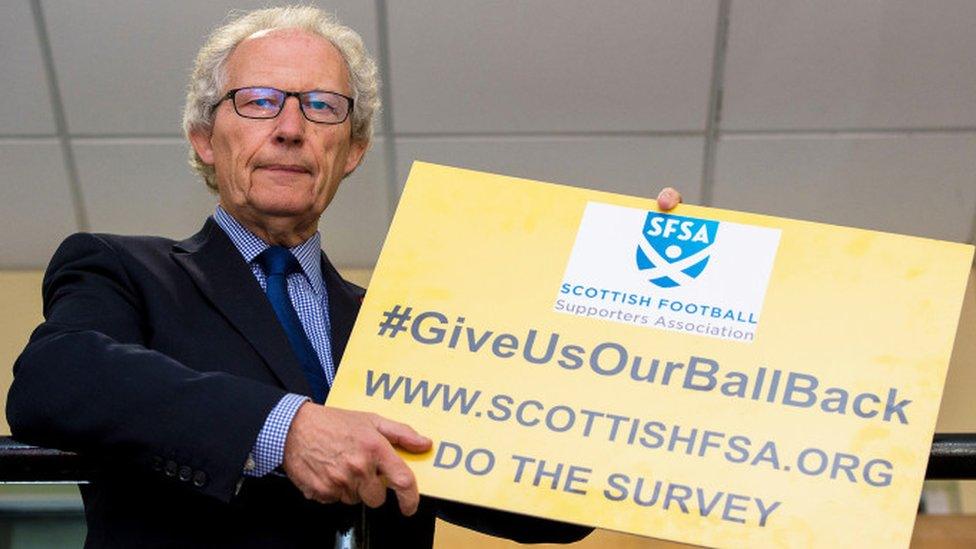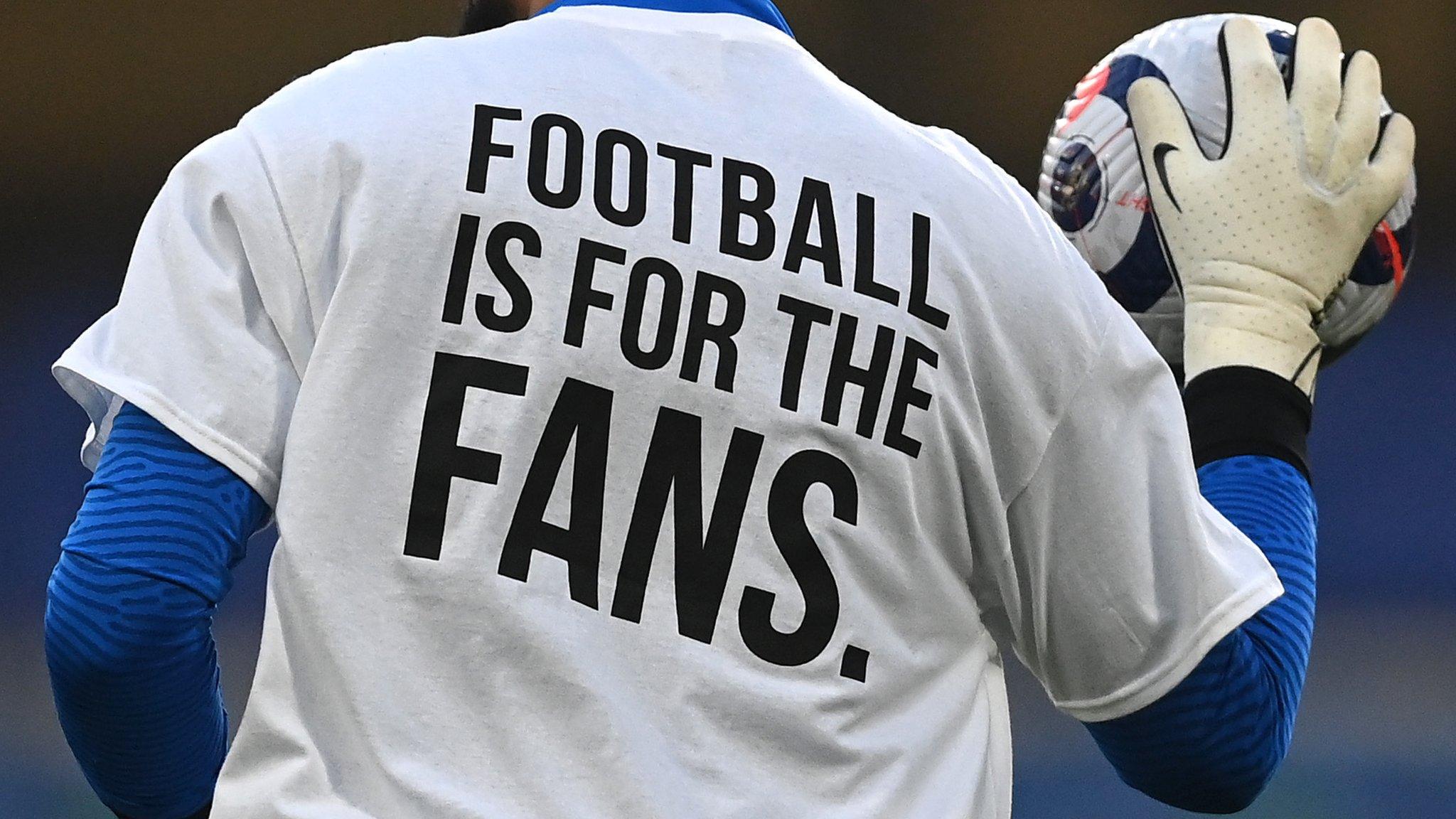Football regulation: What does it mean for the Scottish game?
- Published

Football fans protested outside stadiums following the announcement of the European Super League in April 2021
After years of campaigning and a fan-led review, confirmation came in the King's speech that English football is getting an independent regulator.
The exact remit of the new body will be decided in time but there's little doubt the regulator's introduction to the game means big change could follow.
That's the fear of the governing bodies and some of the bigger clubs who have resisted it - big business doesn't react well to being kept in check and in world football right now, it doesn't come much bigger.
So, if the richest and most high-profile league in the world can't escape the eye of government - does that mean its poorer but no less passionate neighbour will be regulated, almost by proxy?
There have been calls for an independent regulator in Scottish football for as long as the campaigns have been ongoing, south of the border.
That doesn't necessarily mean Holyrood will follow Westminster's lead.
The basic arguments are the same but the football and political landscapes are very different.
Those who want the regulator say fans should have a greater influence in the game. They believe football has such huge societal and cultural significance, it cannot be compared to other businesses.
But the football governance bill was ultimately born as a result of the fight and fears over English clubs' threats to join a breakaway European Super League.
No such fears exist within the Scottish game.
With increasing overseas investment and ownership, there will be scrutiny on who owns football clubs in England, although it's unclear what legal powers the regulator will actually have to minimise or reverse that trend.
And while there have been legitimate questions asked about groups or individuals involved in the ownership of clubs in Scotland, few in the game here would see that as a clear and present threat.
'Lack of political will'
Those campaigning here would have no arguments with those points but they believe the overall governance structure in Scottish football needs to change.
They argue, along with some of the smaller clubs, that the voting structure is skewed heavily in favour of the bigger, more successful clubs.
But it's unlikely the Scottish game would open the door to a regulator that would dilute the powers of the most powerful - so what would it take to have that door forced open?
Like Westminster, only Holyrood could make such changes to Scottish football.
Organisations such as the Scottish Football Supporters Association, assisted by former First Minister Henry McLeish, have been left frustrated by what they see as a lack of political will, despite their attempts to push through a football regulator motion.

Henry McLeish has been involved in previous Scottish Football Supporters Association campaigns
Tentative talks are ongoing but progress, they say, is slow.
Those inside Holyrood tread very carefully these days when it comes to Scottish football.
The much maligned and short-lived Offensive Behaviour at Football Act has left politicians nervous of getting involved in a game that isn't shy on fighting back or showing its political side.
But they also know they can't escape it.
Recent calls for clubs to get tougher on the use of pyrotechnics inside football stadia have come not just from concerned fans and commentators, but also quietly from inside Holyrood.
The "clean up your act or we will be forced to step in" mantra has been used for many years - on issues ranging from sectarian singing, to pyrotechnics, to general offensive behaviour.

The Offensive Behaviour at Football Act was introduced as part of efforts to rid Scottish football of its long-running sectarianism problem
Football now understands that government "stepping in" means regulation but the game also knows how nervous Holyrood is to act.
It also knows government is unlikely to introduce a regulator to deal with issues that the English regulator has already stepped back from.
Westminster has made it clear that football regulation in England will focus on the long-term sustainability of clubs - ministers have been clear that football will continue to govern football.
That means no outside sanctions or point deductions when clubs or fans step out of line - a bark but perhaps no real bite.
Much has yet to be decided and boundaries need to be drawn but for now, Scottish football and the Scottish government will watch on with a mixture of interest, fascination and fear at the birth of football regulation in the UK.
A birth that will leave many celebrating and others extremely uneasy.
Related topics
- Attribution
- Published7 November 2023

- Published31 October 2023

- Attribution
- Published23 February 2023
